French Numbers: Count in French from 1 to 100+ (with Audio)
Do you want to learn French numbers so you’ll never be at a loss about how to count? If you’re looking to get a handle on French numbers of all sorts, I’ve got you covered.
In this article, I explain everything you need to master counting in French. I’ll walk you through both cardinal French numbers (“one, two, three…”) and ordinal French numbers (“first, second, third…”).
I’m an American language lover who learned to speak French as an adult. Whatever your age, you can learn French and have real conversations with a native speaker.
I’ve made friends around the world by speaking French, as well as traveling to France:
Counting is an essential skill if you want to have real conversations in French.
So, let’s start with a handy-dandy list of French numbers from one to ten. There will be a few cheat sheets in this article. Scroll down for tables on counting up to 100 and ordinal numbers. I’ve also included a video that will help you with French numbers pronunciation. You can use this video as a French numbers pronunciation guide, and for listening and speaking practice.
Table of contents
French Numbers 1-10: How to Count to Ten in French
Let’s start with the basics. Counting from one to ten in French is relatively simple. The French numbers up to 10 are as follows.
| # | French Number |
|---|---|
| 0 | Zéro |
| 1 | Un |
| 2 | Deux |
| 3 | Trois |
| 4 | Quatre |
| 5 | Cinq |
| 6 | Six |
| 7 | Sept |
| 8 | Huit |
| 9 | Neuf |
| 10 | Dix |
French Numbers 1-20 and Pronunciation Basics
Okay, so you might be wondering how to pronounce 1-10 in French. Let’s go on to 1-20 and learn how to say these with spot-on French pronunciation.
Here’s how to pronounce the numbers 1-20 in French:
- 1. un (pronounced as “uhn”)
- 2. deux (pronounced as “deuh”)
- 3. trois (pronounced as “twah”)
- 4. quatre (pronounced as “kat”)
- 5. cinq (pronounced as “sank”)
- 6. six (pronounced as “sees”)
- 7. sept (pronounced as “set”)
- 8. huit (pronounced as “weet”)
- 9. neuf (pronounced as “nuhf”)
- 10. dix (pronounced as “dees”)
- 11. onze (pronounced as “ohnz”)
- 12. douze (pronounced as “dooz”)
- 13. treize (pronounced as “trehz”)
- 14. quatorze (pronounced as “katorz”)
- 15. quinze (pronounced as “kanz”)
- 16. seize (pronounced as “sehz”)
- 17. dix-sept (pronounced as “deez-set”)
- 18. dix-huit (pronounced as “deez-weet”)
- 19. dix-neuf (pronounced as “deez-nuhf”)
- 20. vingt (pronounced as “van”)
I’ve got a more detailed pronunciation guide below, so keep reading for more!
French for “One”: Un or Une
Sitting at your favorite Parisian cafe and wanting to order a coffee? Un café, s’il vous plaît will get you properly caffeinated. That’s French for “One coffee, please.”
Later that night, you meet up with some pals for a cold one. Une bière, s’il vous plaît might be useful. It means, “One beer, please.”
Did you notice that there are two versions of “one/a/an” in French? Un is the masculine version and une is the feminine version. To learn more about genders in your target language, read this article by Benny Lewis, founder of Fluent in 3 Months.
French Numbers 1-100: How to Count to 100 in French (with Language Hacks!)
Let’s take a look at numbers 1-100 in French. After you’ve reviewed this, I’ll walk you through some hacks for getting them into your long-term memory.
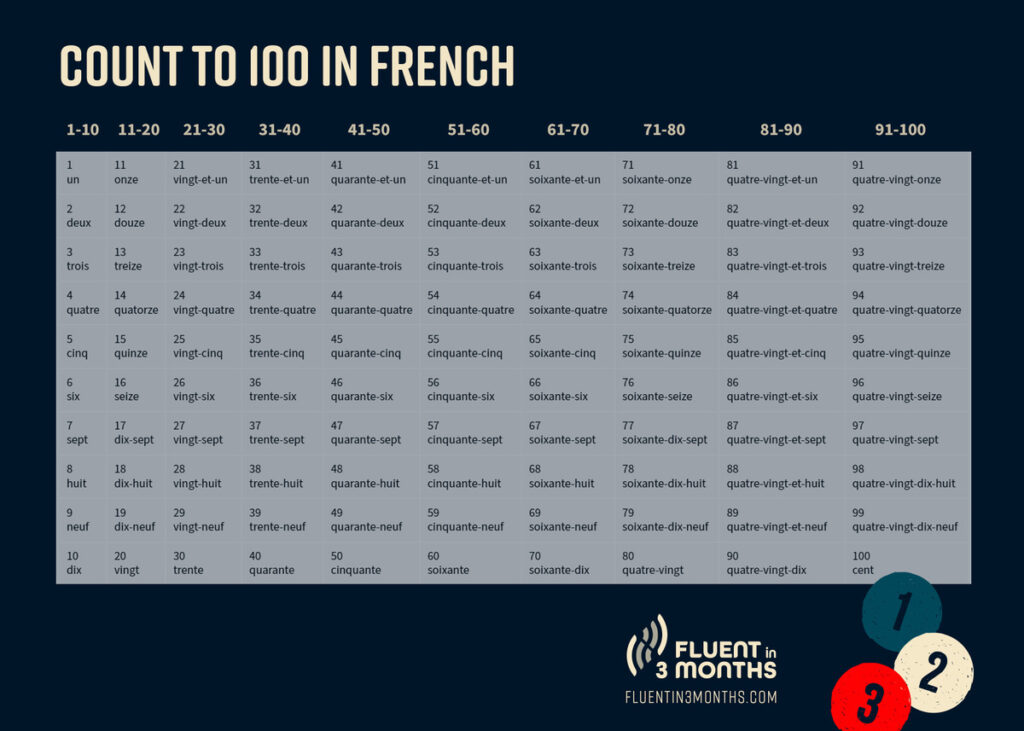
| Number | French | Audio |
| 1 | Un | |
| 2 | Deux | |
| 3 | Trois | |
| 4 | Quatre | |
| 5 | Cinq | |
| 6 | Six | |
| 7 | Sept | |
| 8 | Huit | |
| 9 | Neuf | |
| 10 | Dix | |
| 11 | Onze | |
| 12 | Douze | |
| 13 | Treize | |
| 14 | Quatorze | |
| 15 | Quinze | |
| 16 | Seize | |
| 17 | Dix-sept | |
| 18 | Dix-huit | |
| 19 | Dix-neuf | |
| 20 | Vingt | |
| 21 | Vingt et un | |
| 22 | Vingt-deux | |
| 23 | Vingt-trois | |
| 24 | Vingt-quatre | |
| 25 | Vingt-cinq | |
| 26 | Vingt-six | |
| 27 | Vingt-sept | |
| 28 | Vingt-huit | |
| 29 | Vingt-neuf | |
| 30 | Trente | |
| 31 | Trente et un | |
| 32 | Trente-deux | |
| 33 | Trente-trois | |
| 34 | Trente-quatre | |
| 35 | Trente-cinq | |
| 36 | Trente-six | |
| 37 | Trente-sept | |
| 38 | Trente-huit | |
| 39 | Trente-neuf | |
| 40 | Quarante | |
| 41 | Quarante et un | |
| 42 | Quarante-deux | |
| 43 | Quarante-trois | |
| 44 | Quarante-quatre | |
| 45 | Quarante-cinq | |
| 46 | Quarante-six | |
| 47 | Quarante-sept | |
| 48 | Quarante-huit | |
| 49 | Quarante-neuf | |
| 50 | Cinquante | |
| 51 | Cinquante et un | |
| 52 | Cinquante-deux | |
| 53 | Cinquante-trois | |
| 54 | Cinquante-quatre | |
| 55 | Cinquante-cinq | |
| 56 | Cinquante-six | |
| 57 | Cinquante-sept | |
| 58 | Cinquante-huit | |
| 59 | Cinquante-neuf | |
| 60 | Soixante | |
| 61 | Soixante et un | |
| 62 | Soixante-deux | |
| 63 | Soixante-trois | |
| 64 | Soixante-quatre | |
| 65 | Soixante-cinq | |
| 66 | Soixante-six | |
| 67 | Soixante-sept | |
| 68 | Soixante-huit | |
| 69 | Soixante-neuf | |
| 70 | Soixante-dix | |
| 71 | Soixante et onze | |
| 72 | Soixante-douze | |
| 73 | Soixante-treize | |
| 74 | Soixante-quatorze | |
| 75 | Soixante-quinze | |
| 76 | Soixante-seize | |
| 77 | Soixante-dix-sept | |
| 78 | Soixante-dix-huit | |
| 79 | Soixante-dix-neuf | |
| 80 | Quatre-vingts | |
| 81 | Quatre-vingt-un | |
| 82 | Quatre-vingt-deux | |
| 83 | Quatre-vingt-trois | |
| 84 | Quatre-vingt-quatre | |
| 85 | Quatre-vingt-cinq | |
| 86 | Quatre-vingt-six | |
| 87 | Quatre-vingt-sept | |
| 88 | Quatre-vingt-huit | |
| 89 | Quatre-vingt-neuf | |
| 90 | Quatre-vingt-dix | |
| 91 | Quatre-vingt-onze | |
| 92 | Quatre-vingt-douze | |
| 93 | Quatre-vingt-treize | |
| 94 | Quatre-vingt-quatorze | |
| 95 | Quatre-vingt-quinze | |
| 96 | Quatre-vingt-seize | |
| 97 | Quatre-vingt-dix-sept | |
| 98 | Quatre-vingt-dix-huit | |
| 99 | Quatre-vingt-dix-neuf | |
| 100 | Cent |
As you can see from the table, everything is hunky-dory from one to 69.
Things get a little tricky for 70, 80 & 90. We’ll look at them closely in a moment. Don’t fret. If Napoleon could handle French numbers, you can, too!

1-100 in French. Whew! That’s a whole lotta numbers. Let’s see if we can find some patterns.
Start by learning the numbers for 1-15. This is the foundation for all other numbers: un, deux, trois, quatre, cinq, six, sept, huit, neuf, dix, onze, douze, treize, quatorze, quinze.
Memorize the numbers for the multiples of ten: vingt, trente, quarante, cinquante, soixante, soixante-dix, quatre-vingt, quatre-vingt-dix.
Language Hacks for Learning French Numbers
Don’t worry if you’re feeling a bit overwhelmed by numbers in French. I’ve been there too, and I’m here to help!
Mundane memorization can be helped by incorporating movement into the sessions. I still hear splashing water when I count in French. Years ago, I took my flashcards into the shallow end of a pool. I memorized them out loud while hopping from one side of the pool to the other. Hey, whatever floats your boat!
Once you’ve memorized the above, you can fill in the gaps with a simple formula:
- For numbers from 16-19, take the rightmost digit and say “dix + (digit)”. E.g. 17 = dix + sept = dix-sept. This is like English: 17 is “seven + ten” i.e. “seventeen”.
- It’s pretty simple for 21, 31, 41, 51, 61 and 81. You simply add “and one” which is et un. E.G. 51 = “fifty and one” = cinquante-et-un. (The exceptions to this rule are 71 & 91.)
- The numbers from 22-29, 32-39 and so on get contracted into a single word – so instead of vingt et huit, it’s vingt-huit. You merely add the single number to the tens number.
Two easy wins:
- zero = zéro: Add a fancy accent and you’ve got this one.
- 100 = cent: Just remember that 100 cents make a dollar.
A few tricky numbers to master:
- 70 = soixante-dix which is “60 + 10”
- 80 = quatre-vingts which is “four 20s”
- 90 = quatre-vingt which is “four 20s + 10”
The country of France is where this wacky math comes into play. In Switzerland and Belgium, you can use a simpler version.
- 70 = septante
- 80 = huitante
- 90 = nonante
Folks in France would be able to understand you if you use those numbers. But what fun is speaking in French without a little Parisian calculation?
Because 70 and 90 are 60 and 80 plus 10, they use teens to express their digits from 71-79 and 91-99. For example, 71 is soixante-et-onze (“60 + 11”) while 95 is quatre-vingt-quinze (“80 + 15”). You can scroll back up to the numbers table to practice.
It sounds complicated but it’s not too bad. Once you run through these a few times, you’ll have a solid grasp on the 70s and 90s. Or rather bell-bottoms and flannel plaid shirts.
And we at Fluent in 3 Months should know how to hack French – we literally wrote the book on it!
What’s the Word in French for 100?
We mentioned it earlier but I didn’t want you to miss it. So, here it is again. The word for 100 in French is cent.
Here is an interesting fact. 100 and 1000 (cent and mille) never use the indefinite article (un). Whereas the other larger numbers do. In English, we use the indefinite “a” and “an”. For example, we have a hundred people here. Or we have a thousand people here.
In French, we say, “We have hundred people here.” or “We have thousand people here.” The indefinite article (un) is only omitted when using the numbers cent and mille. When we get to a million, the indefinite article is used again. Let’s look at some examples.
Nous avons cent personnes ici. – “We have hundred people here.”
Nous avons mille personnes ici. – “We have thousand people here.”
Nous avons un million de personnes ici. – “We have a million people here.”
Nous avons un milliard de personnes ici. – “We have a billion people here.”
French Numbers 100-1000: How to Count to 1000 in French
We’ve covered 1-100 in French, now let’s count 100-1,000! Larger French numbers follow a few simple rules:
For numbers from 100 to 199, use cent followed by the rest of the number:
105 = cent cinq
149 = cent quarante-neuf
181 = cent quatre-vingt-un
For numbers from 200 to 999, you’re going to be happy. They are relatively simple:
200 = deux cents
300 = trois cents
400 = quatre cents
500 = cinq cents
600 = six cents
700 = sept cents
800 = huit cents
900 = neuf cents
To fill in the gaps for the remaining numbers from 200-999, follow the same patterns as 100:
501 = cinq cent un
508 = cinq cent huit
530 = cinq cent trente
531 = cinq cent trente-et-un
565 = cinq cent soixante-cinq
598 = cinq cent quatre-vingt-dix-huit
French Numbers from 1,000 to 1 Million
And now, on to the huge numbers: Counting to 1,000 in French, and even 1,000,000 in French!
Great news! You only need to learn two new words to be able to count to 1,000,000. Those essential words are mille (1,000) and un millon (1,000,000).
The only time you’ll see un mille is in numbers like soixante et un mille (61,000). You need to put an un in this number to differentiate it from soixante mille (60,000). When talking about 1,000 with nothing in the “ten-thousands” column, write mille, with no un.
Forming new numbers with mille and un millon is fairly straightforward. It is best illustrated by example:
1,000 = mille
1,001 = mille et un
1,500 = mille cinq cents
1,766 = sept cent soixante-six
2,001 = deux mille un
40,000 = quarante mille
74,000 = soixante-quatorze mille
100,000 = cent mille
415,297 = quatre cent quinze mille deux cent quatre-vingt-dix-sept
1,000,000 = un million
3,000,000 = trois millions
6,492,000 = six millions quatre cent quatre-vingt-douze mille
8,841,932 = huit millions huit cent quarante et un mille neuf cent trente-deux
When you’re using un million or a million with a noun, you must use de. “One million cats” is un millon de chats. Literally, you’re saying “one million of cats”. That would be one serious cat-lady.
Billions and Trillions in French
Counting large numbers in French isn’t too difficult, but there are a few things to watch out for.
1,000,000,000 (one billion) = un milliard
1,000,000,000,000 (one trillion) = un billion
While English uses the French word for million, billion is not a cognate. A cognate is a word that sounds or looks similar to another word in another language. Sometimes this is because they come from the same family. Other times, it’s because the word is borrowed.
Un billion is French is what we call a false friend. It looks exactly the same as our English word but it means something different. Un billion means a trillion in French. With a little practice, you’ll have it down pat in no time.
French Numbers Pronunciation
Here’s a video I made that will help you pronounce French numbers.
There are two ways to pronounce six “six”, huit “eight”, and dix “ten”.
This bit of information is for intermediate learners. If you’re a beginner, it doesn’t hurt to read this section. Simply let the ideas flow over you for the first time.
The pronunciation of six “six”, huit “eight”, and dix “ten” will depend on the word that follows them in a sentence. Let’s look at a few examples to help you understand the differences.
When Six, Huit or Dix Is the Last Word in the sentence
Let’s start with the easiest pronunciation. This is the one we use when we are simply counting. We also use this pronunciation when the number comes at the very end of a sentence.
Combien de billets avez-vous? – “How many tickets do you have?”
- J’en ai six. (“seese”) – “I have six of them.”
- J’en ai huit. (“weet”) – “I have eight of them.”
- J’en ai dix. (“deese”) – “I have ten of them.”
When Six, Huit or Dix Is Followed by a Consonant
If six is followed by a word starting with a consonant such as chiens (“dogs”), it will be pronounced “see”. This rule applies to all three numbers.
- Six chiens (“see”)
- Huit chiens (“wee”)
- Dix chiens (“dee”)
When Six, Huit or Dix Is Followed by a Vowel
If six or dix is followed by a word starting with a vowel, it will be pronounced with a Z on the end.
- Six oranges (seez)
- Dix oranges (deez)
Ordinal Numbers in French
Let’s wrap this up with ordinal numbers.
What is an ordinal number? It is a number that explains a noun’s place in a sequence (e.g. the first runner to cross the finish line, the second house on the right).
First things first. Here’s a table to give you the most important ordinal numbers. See if any of these words look familiar to you. I bet you’ll see a few words you already know.
| English | Français (M/F) | English | Français |
|---|---|---|---|
| first | premier/première | eleventh | onzième |
| second | deuxième | twelfth | douzième |
| third | troisième | thirteenth | treizième |
| fourth | quatrième | fourteenth | quatorzième |
| fifth | cinquième | fifteenth | quinzième |
| sixth | sixième | sixteenth | seizième |
| seventh | septième | seventeenth | dix-septième |
| eighth | huitième | eighteenth | dix-huitième |
| ninth | neuvième | nineteenth | dix-neuvième |
| tenth | dixième | twentieth | vingtième |
Our second tip: In French, adjectives must agree with the gender of the noun it is describing. I have some wonderful news for you! Most ordinal numbers can be used for both masculine and feminine words.
The important exception is first. It’s première for feminine nouns and premier for masculine nouns.
And third but not least, word order for ordinal numbers is similar to English. The ordinal number comes before the word. The majority of adjectives come after the noun in French. So, this is a little freebie for anglophones.
the first dog = le premier chien
the brown dog = le chien brun
the fifth house = la cinquième maison
the clean house = la maison propre
Learning French helped Benny navigate Montreal, Canada with ease, even meeting Jodi, his blogger friend!
Where Can You Practice Speaking French Numbers?
The best part of learning French (including French numbers) is having real conversations in French. If you'd like to do this, you can join me (and the other Fluent in 3 Months language coaches) in the Fluent in 3 Months Bootcamp.
We'll help you find what it takes to master your French numbers. And you'll have a 15-minute conversation in French after just 90 days of learning. Join Bootcamp here: Yes! I want to have real conversations in French in just 90 days.
Where Can You Practice Speaking French Numbers?
The best part of learning French (including French numbers) is having real conversations in French. If you’d like to do this, you can join me (and the other Fluent in 3 Months language coaches) in the Fluent in 3 Months Bootcamp.
We’ll help you find what it takes to master your French numbers. And you’ll have a 15-minute conversation in French after just 90 days of learning.
The Napoleon of French Numbers – That’s you!
So, there you have it. You now know how to count from one to infinity in French.
I recommend watching the pronunciation video a few times and repeating the phrases. And don’t forget to habit stack while you’re doing it. Pronunciation videos pair well with mindless tasks like walking or menial chores.
And if the numbers seem too difficult to you, I want to point you towards some French-learning inspiration stories. Check out the Language Hacking podcast, especially episodes like Melanie’s about how she learnt French with her seven children. You will get a lot of great tips on learning to speak French in real conversations:
I hope you enjoyed this article. Á bientôt ! (“See you soon!”)
Original article by Elizabeth Bruckner. Last updated by the Fluent in 3 Months team February 19th 2024.

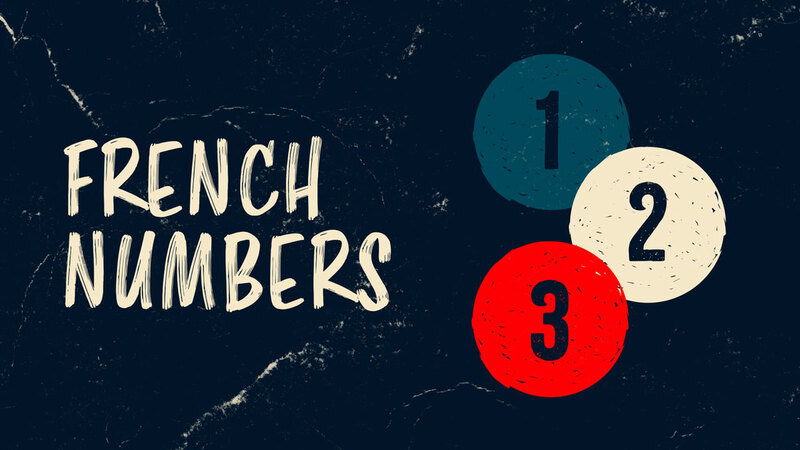
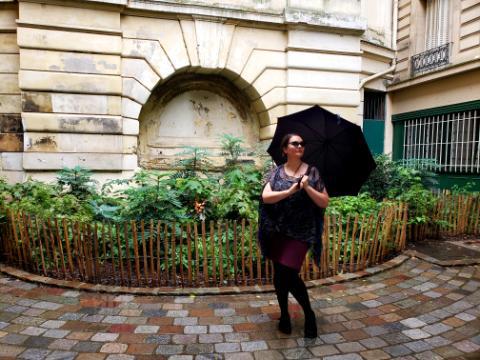
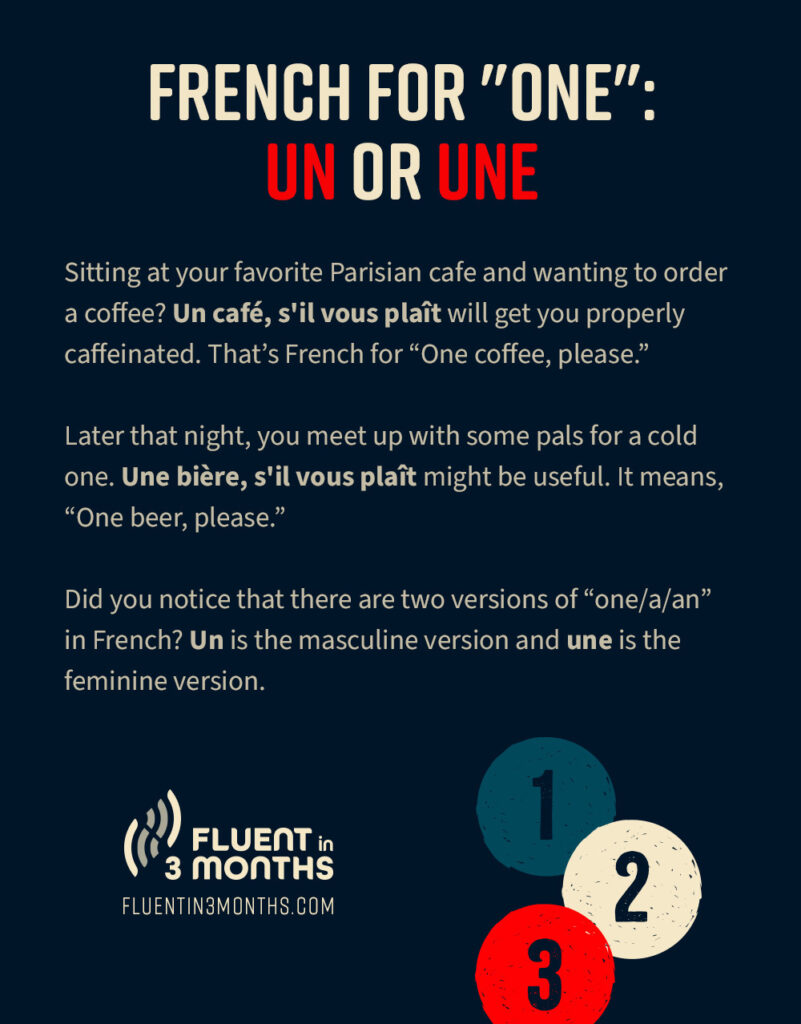

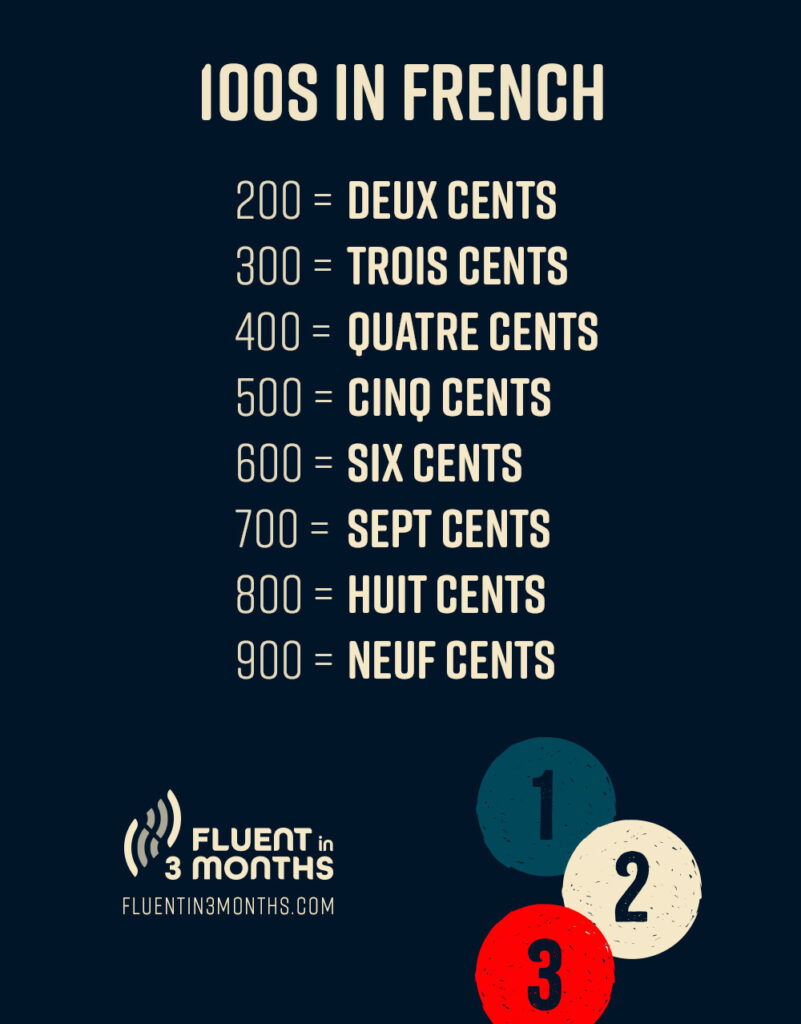
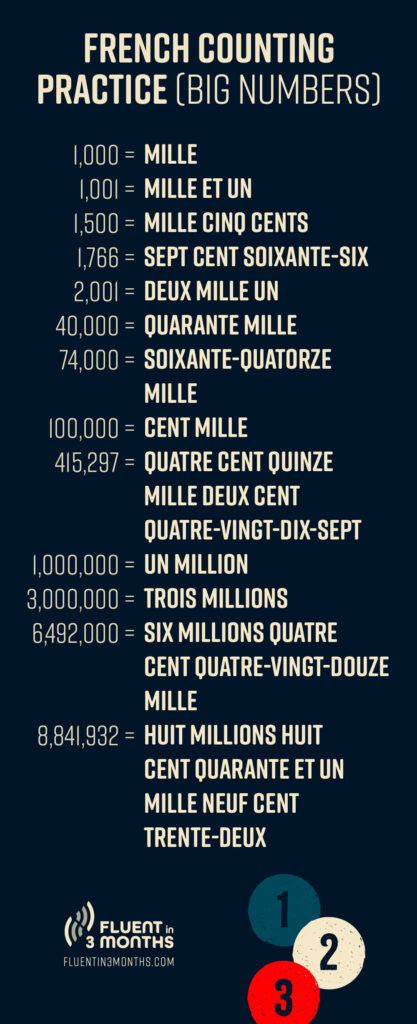


Social